In the Welding Technology program, students receive hands-on training in safety, welding, and cutting on a variety of metals. Instruction includes basic Oxy Fuel Cutting (OFC), Gas Metal Arc Welding (GMAW), Shielded Metal Arc Welding (SMAW), Flux Cored Arc Welding (FCAW), Gas Tungsten Arc Welding (GTAW), and other thermal and mechanical cutting processes. Students also learn welding process-specific and welding shop safety practices, basic print reading, and the proper uses and applications of AWS welding symbols.
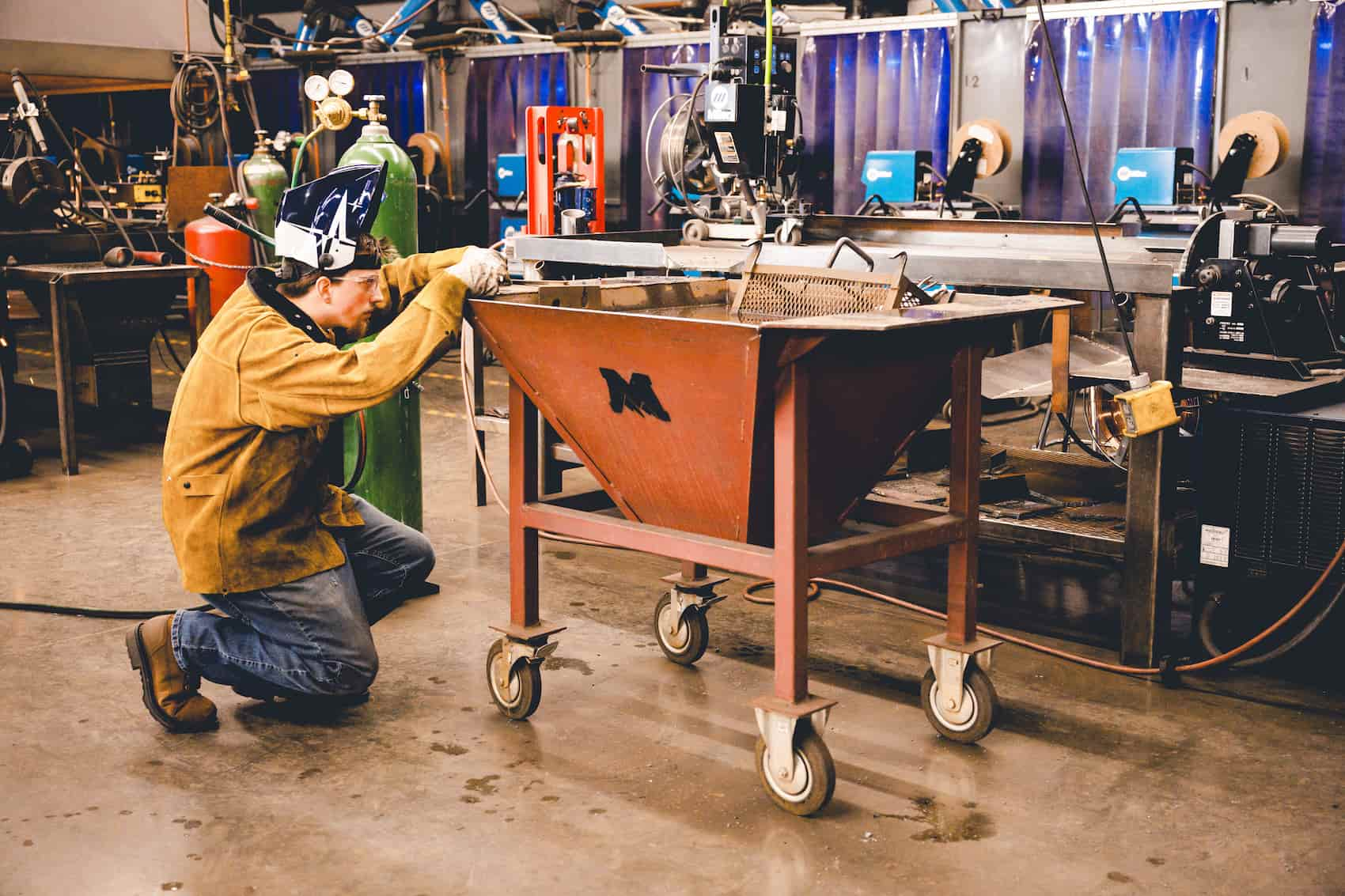
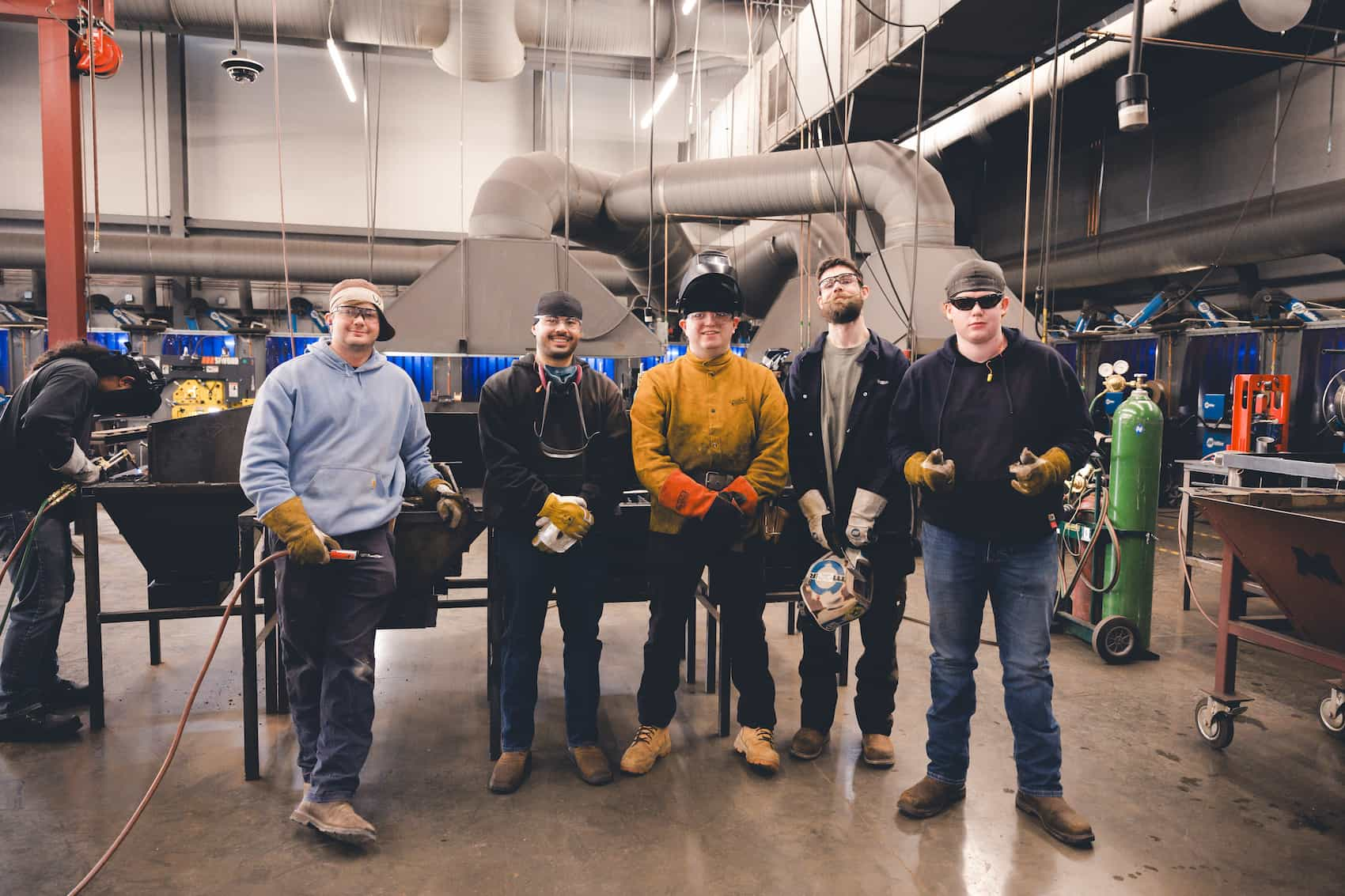
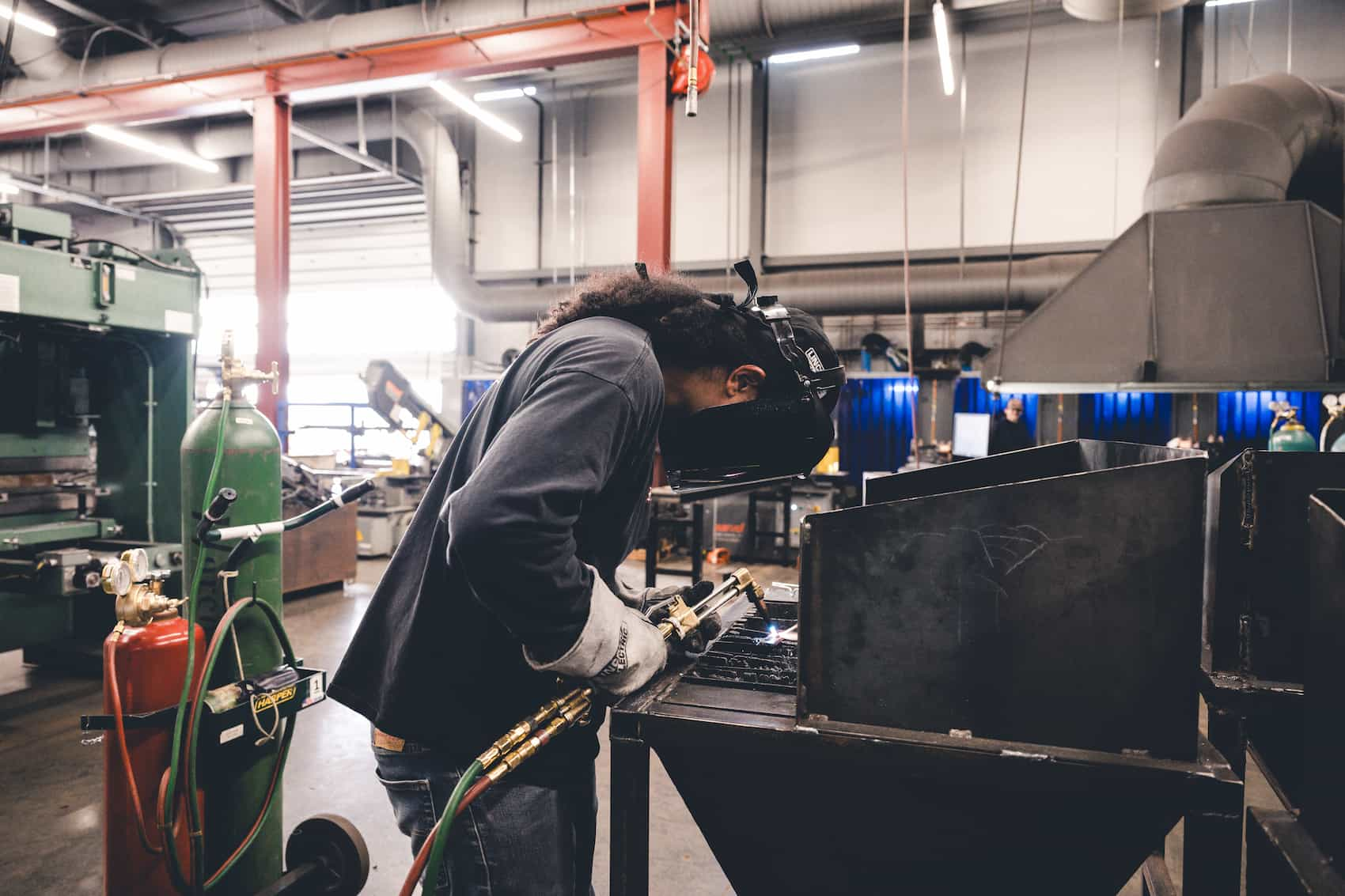
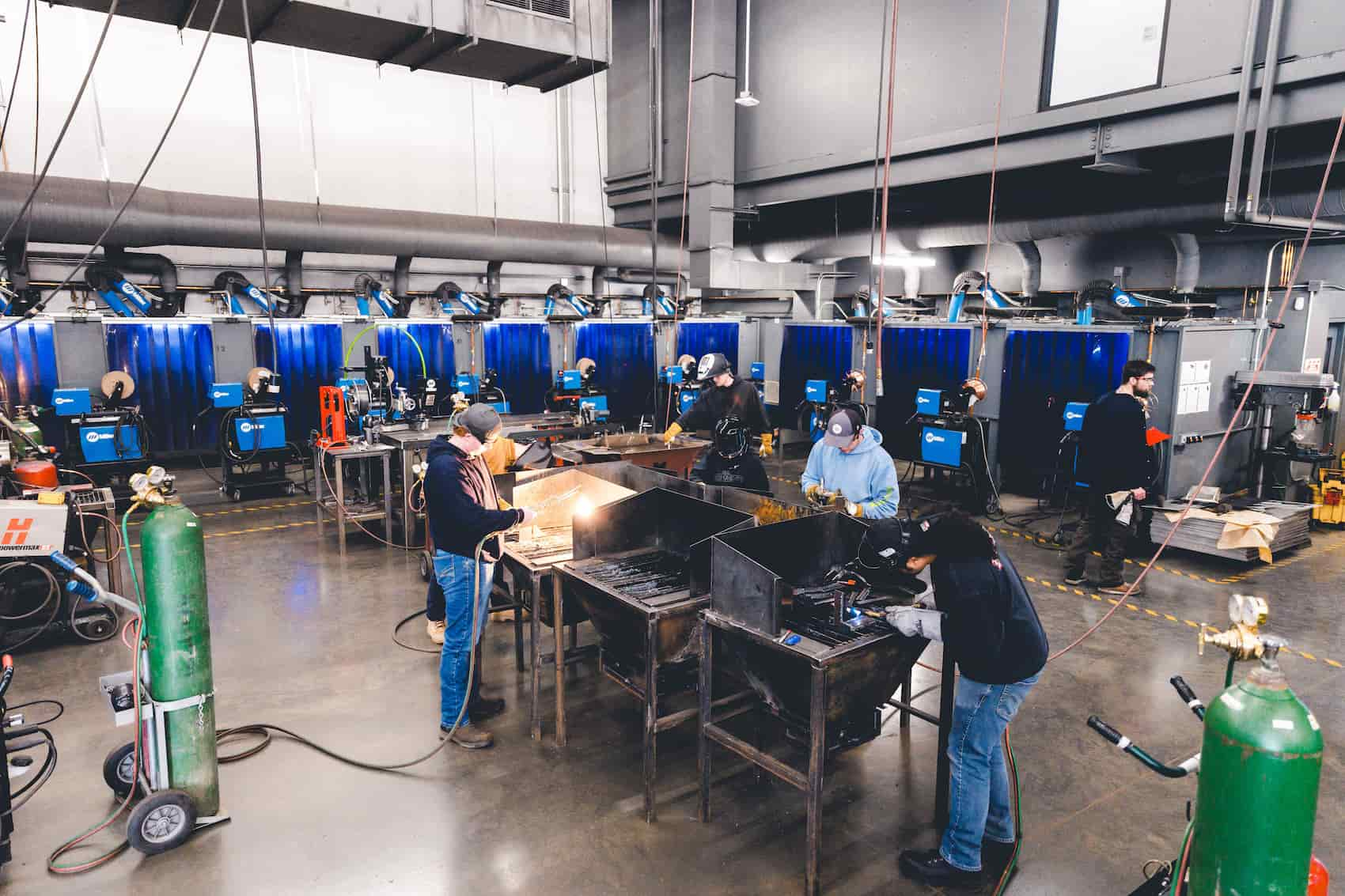
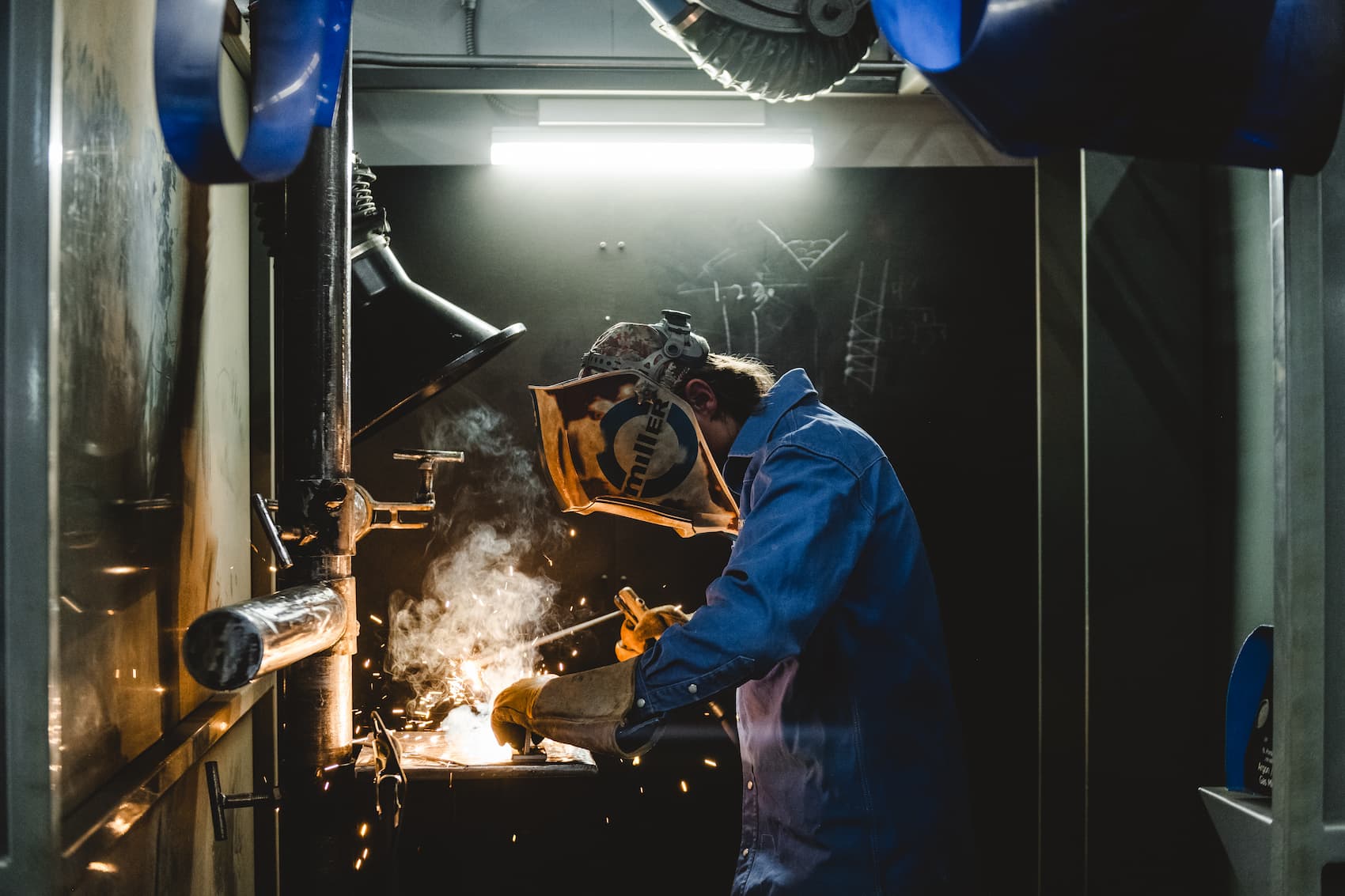
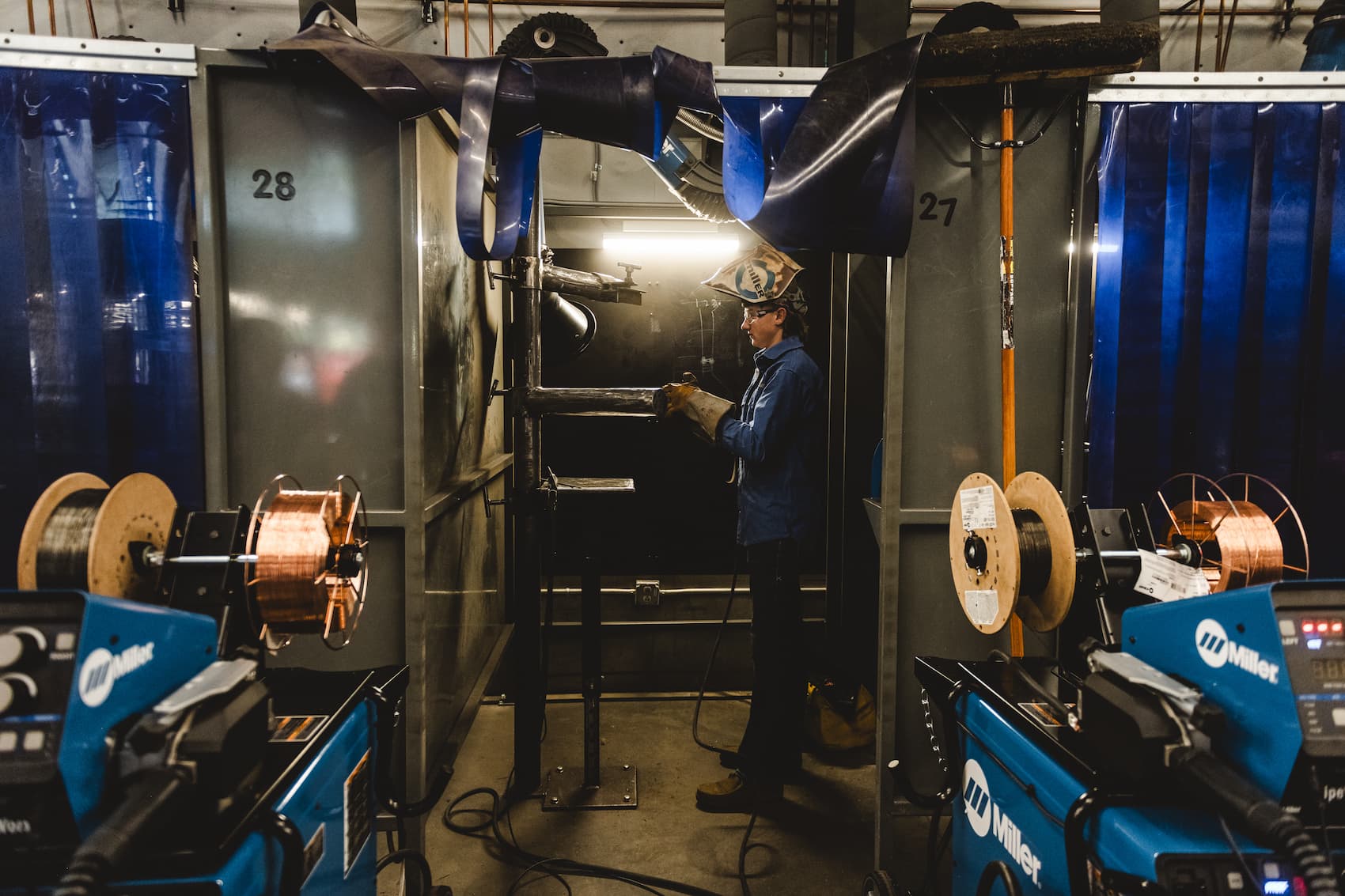
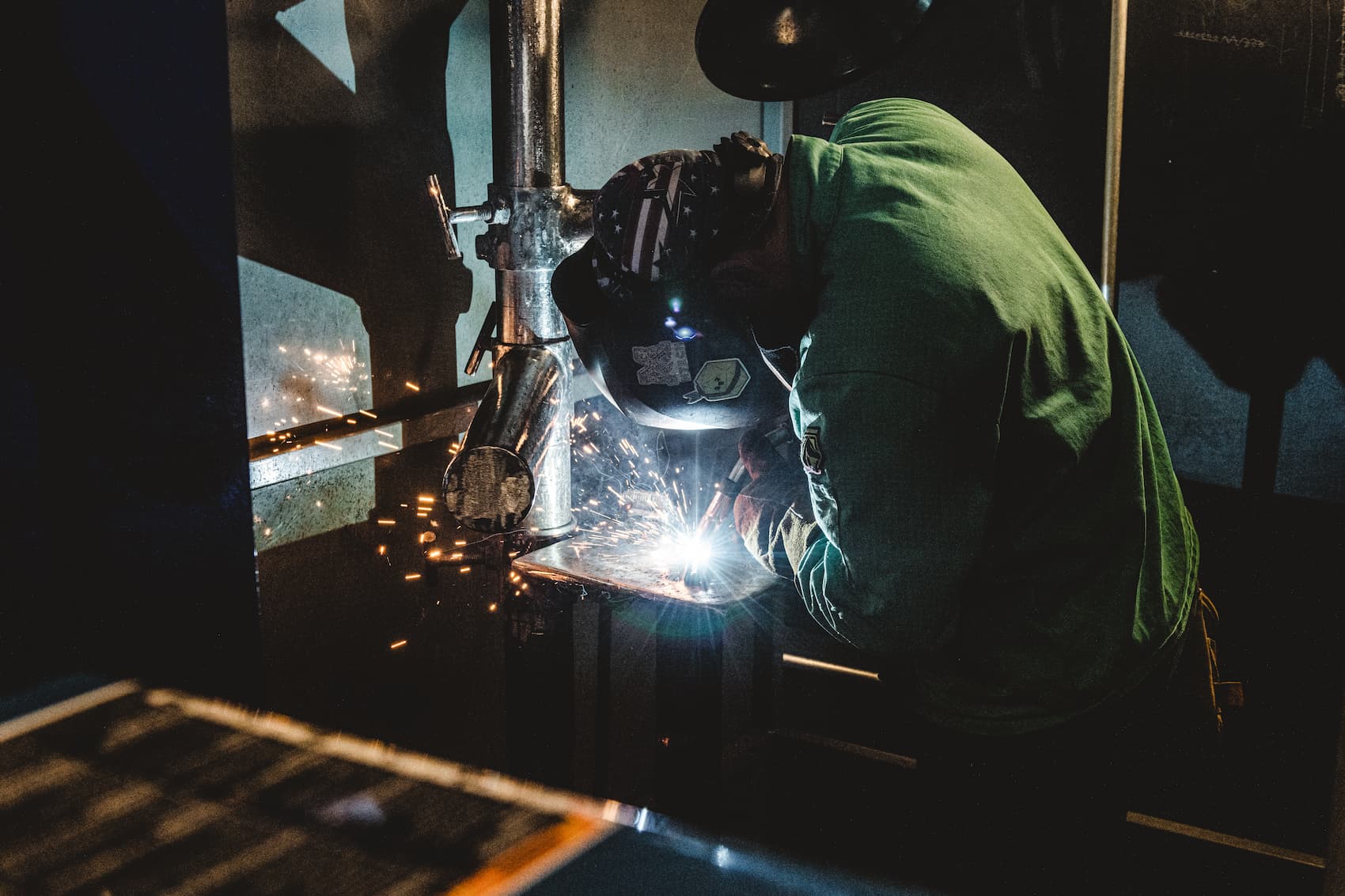
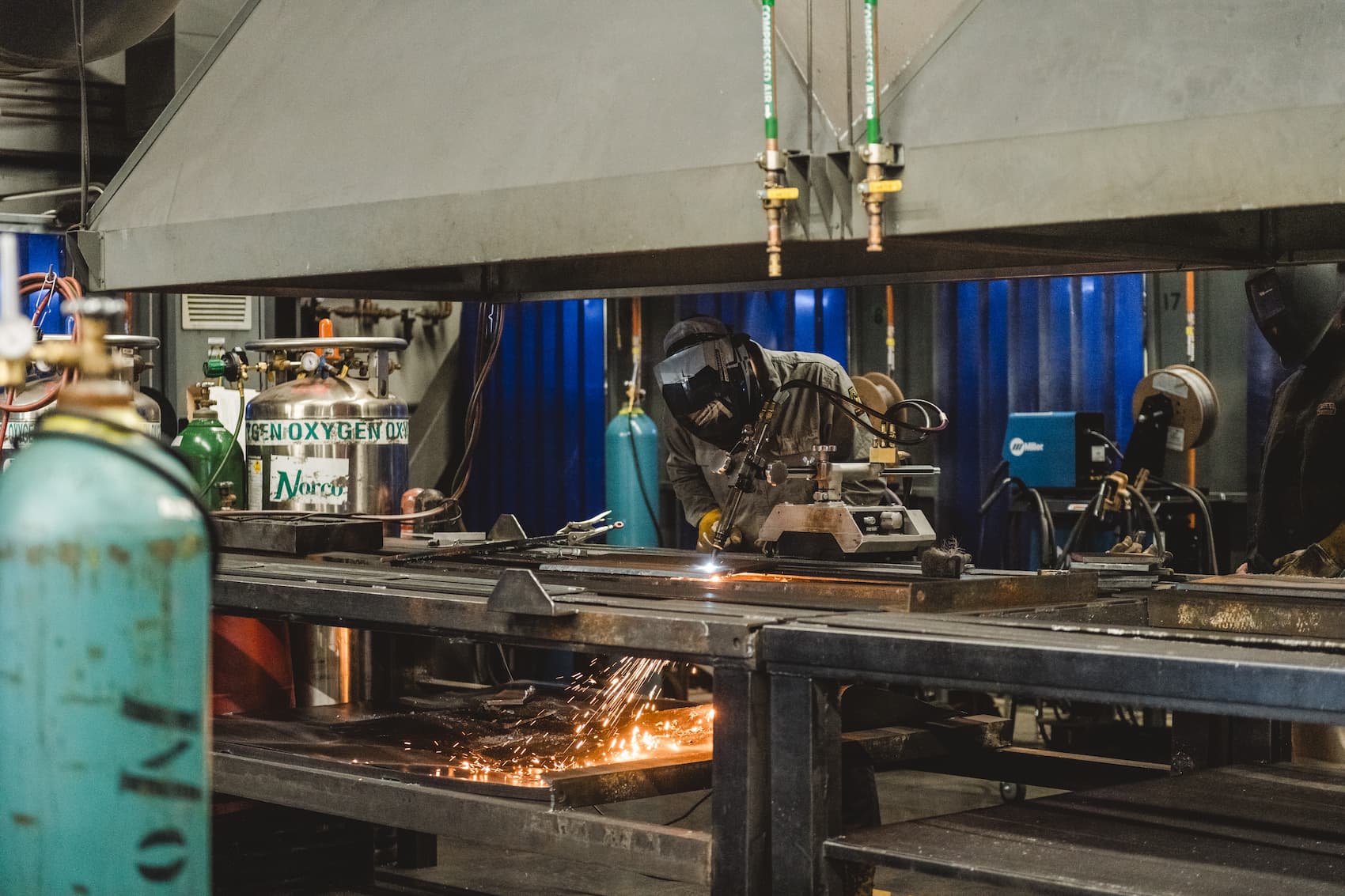
This program is eligible for Financial and Veterans Aid! Learn more
Registration: This program is considered “non-term”, which means there are multiple registration dates throughout the year. Here are the registration dates with the correlating start date:
PROGRAM LOCATION | registration OPEN date | REGISTRATION CLOSE DATE | start date |
|---|---|---|---|
Lehi, Orem | September 2, 2025 | September 8, 2025 | |
Lehi, Orem, Payson | September 29, 2025 | October 6, 2025 | |
Lehi, Orem | October 27, 2025 | November 3, 2025 (except Payson) | |
Lehi, Orem, Payson | November 4, 2025 | December 1, 2025 | |
Lehi, Orem, Payson | December 8, 2025 | January 5, 2026 | |
Lehi, Orem, Payson | January 26, 2026 | February 2, 2026 | |
Lehi, Orem, Payson | February 23, 2026 | March 2, 2026 | |
Lehi, Orem, Payson | March 30, 2026 | April 6, 2026 | |
Lehi, Orem, Payson | April 27, 2026 | May 4, 2026 | |
Lehi, Orem, Payson | May 18, 2026 | June 1, 2026 |
Minimum Age Requirement: 17 years old. High school students must be in their senior year, and can only start on the August or January start dates.
Adult Students: Registration is only available in-person or over the phone with Student Services.
High School Students: Registration opens at 8:00 AM in Learning Stream on the designated registration day.
Satisfy Entrance Requirements with Testing Center
Potential students must meet with an Admissions Advisor before enrolling.
High school welding students are limited to the August and January start dates. High school students can register through Learning Stream or in person at Student Services.
| Term | Campus | Room # | Start Date – End Date | Time | Days |
|---|---|---|---|---|---|
| Fall 2025 | Lehi Building B | 116 | non-term | 7:30am – 10:30am | Monday – Friday |
| Fall 2025 | Lehi Building B | 116 | non-term | 11:30am – 2:30pm | Monday – Friday |
| Fall 2025 | Lehi Building B | 116 | non-term | 2:45pm – 5:45pm | Monday – Friday |
| Fall 2025 | Lehi Building B | 116 | non-term | 6:00pm – 9:00pm | Monday – Friday |
| Fall 2025 | Lehi Building B | 116 | non-term | 7:30am – 10:30am | Monday, Wednesday, Friday |
| Fall 2025 | Lehi Building B | 116 | non-term | 11:30am – 2:30pm | Monday, Wednesday, Friday |
| Fall 2025 | Lehi Building B | 116 | non-term | 2:45pm – 5:45pm | Monday, Wednesday, Friday |
| Fall 2025 | Lehi Building B | 116 | non-term | 6:00pm – 9:00pm | Monday, Wednesday, Friday |
| Fall 2025 | Lehi Building B | 116 | non-term | 7:30am – 10:30am | Tuesday, Thursday, Friday |
| Fall 2025 | Lehi Building B | 116 | non-term | 11:30am – 2:30pm | Tuesday, Thursday, Friday |
| Fall 2025 | Lehi Building B | 116 | non-term | 2:45pm – 5:45pm | Tuesday, Thursday, Friday |
| Fall 2025 | Lehi Building B | 116 | non-term | 6:00pm – 9:00pm | Tuesday, Thursday, Friday |
| Fall 2025 | Orem Building A | 108A | non-term | 7:30am – 10:30am | Monday – Friday |
| Fall 2025 | Orem Building A | 108A | non-term | 11:30am – 2:30pm | Monday – Friday |
| Fall 2025 | Orem Building A | 108A | non-term | 2:45pm – 5:45pm | Monday – Friday |
| Fall 2025 | Orem Building A | 108A | non-term | 6:00pm – 9:00pm | Monday – Friday |
| Fall 2025 | Orem Building A | 108A | non-term | 7:30am – 10:30am | Monday, Wednesday, Friday |
| Fall 2025 | Orem Building A | 108A | non-term | 11:30am – 2:30pm | Monday, Wednesday, Friday |
| Fall 2025 | Orem Building A | 108A | non-term | 2:45pm – 5:45pm | Monday, Wednesday, Friday |
| Fall 2025 | Orem Building A | 108A | non-term | 6:00pm – 9:00pm | Monday, Wednesday, Friday |
Total hours: 900
| Course Name | Course Hours | Course Credits | Tuition | Course Fees |
|---|---|---|---|---|
| Introduction to Welding and Cutting | 60 | 2 | $240.00 | $225.00 |
| Introduction to Welding and Cutting II | 30 | 1 | $120.00 | $209.00 |
| Measurement Systems | 30 | 1 | $120.00 | – |
| Welding Symbols and Print Reading | 60 | 2 | $240.00 | $50.00 |
| Shielded Metal Arc Welding (SMAW) I | 60 | 2 | $240.00 | $157.00 |
| Shielded Metal Arc Welding (SMAW) II | 60 | 2 | $240.00 | $133.00 |
| Shielded Metal Arc Welding (SMAW) III | 90 | 3 | $360.00 | $133.00 |
| Gas Tungsten Arc Welding (GTAW) I | 60 | 2 | $240.00 | $149.00 |
| Gas Tungsten Arc Welding (GTAW) II | 60 | 2 | $240.00 | $125.00 |
| Gas Tungsten Arc Welding (GTAW) III | 60 | 2 | $240.00 | $125.00 |
| Gas Metal Arc Welding (GMAW) I | 60 | 2 | $240.00 | $133.00 |
| Gas Metal Arc Welding (GMAW) II | 90 | 3 | $360.00 | $218.00 |
| Flux Cored Arc Welding (FCAW) I | 60 | 2 | $240.00 | $133.00 |
| Flux Cored Arc Welding (FCAW) II | 90 | 3 | $360.00 | $218.00 |
| Submerged Arc Welding (SAW) | 30 | 1 | $120.00 | $175.00 |
Upon registration, you will register and submit payment for the first course in the program.
While not required, you may make a deposit, in person or online, for the full program upon registration to be held in your student account.
| Tuition/Fees | Cost |
|---|---|
| Tuition: | $3,600.00 |
| Registration Fee: | $40.00 |
| Application Fee: | $0.00 |
| Course Fees: | $2,183.00 |
| Required Materials: | $668.00 |
| Total Cost of Program: | $6,521 |
Note: High school students attend MTECH tuition free, and are only responsible for fees and materials.
Course-by-course cost breakdowns can be found on the “Courses” tab above.
Upon registration, you will register and submit payment for the first course in the program.
While not required, you may make a deposit, in person or online, for the full program upon registration to be held in your student account.
materials | notes | cost |
|---|---|---|
AWS Online Subscription | Annual $75 AWS Online Access fee | Included in course fees |
Blueprint Reading for Welders; 9th Ed. | Included in course fees | |
Gas Metal Arc Welding Technical Guide | Included in course fees | |
Flux Cored Arc Welding Technical Guide | Included in course fees | |
Shielded Metal Arc Welding Technical Guide | Included in course fees | |
Gas Tungsten Arc Welding Technical Guide | Included in course fees | |
Welding Equipment | 2 soapstone holders, 1 mild steel & 1 stainless steel wire brush, 4 grinding discs, 4 tungsten sticks | $240 |
Welding Helmet | $70 | |
Protective Clothing | 2 canvas jackets, 1 SMAW & 1 GMAW gauntlet gloves 4 lens replacements, 2 safety glasses, | $100 |
Exam Materials for Industry Certifications | $20 | |
Leather Safety Toed Boots | varies | |
Chipping Hammer | Can be purchased in the MTECH Store or at Norco | $8 |
Spark Striker and Tip Cleaner | Can be purchased in the MTECH Store or at Norco | $5 |
Combination Square | Can be purchased in the MTECH Store or at Norco | $10 |
Vice Grips and Welpers | Can be purchased in the MTECH Store or at Norco | $10 |
4 1/2″ Grinder | Can be purchased in the MTECH Store or at Norco | $97 |
Tape Measure | Can be purchased in the MTECH Store or at Norco | $10 |
Fillet Weld Gauge | Can be purchased in the MTECH Store or at Norco | $48 |
GTAW- 3/32″ Collet, Collet Body, Back Cap, insulator and GTAW torch cup | Can be purchased in the MTECH Store or at Norco | $20 |
Test Coupons (will need to purchase for each test) | 1 per student – 3/8″ Plate Coupons | $10/each |
Test Coupons (will need to purchase for each test) | 1 per student – 1″ Plate Coupons | $20/each |
MTECH Program Certificate in Welding Technology
American Welding Society (AWS) Level I Welder Certificates in:
GMAW
FCAW
SMAW
GTAW
AWS D1.1 3G Structural Steel Qualification – FCAW
AWS d1.1 3G Structural Steel Qualification – SMAW
(Optional) AWS D1.1 2G Structural Steel Qualification – GMAW Axel Spray Transfer
(Optional) AWS D1.1 3G Structural Steel Qualification – GTAW
(Optional) AWS D1.1 1G Structural Steel Qualification – SAW
Can I take this program while I’m still in high school?
Yes, we allow seniors in high school with prior welding experience to take the program.
Does MTECH provide the required Personal Protective Equipment (PPE) and tools?
No, we require students to provide all the required PPE and tools. We do carry all of the tools in the book store and we also have an agreement set up with Norco to give our students a student discount on everything they need for the class.
Does MTECH place students with an employer?
No. Students are responsible for acquiring employment within the industry.There will be opportunities throughout the course to connect with industry representatives that are hiring. MTECH Student Job Board, Canvas job postings and the Department of Workforce Services are great employment resources as well.
What is the class structure?
Students can expect about 85% of the time in the program to be out in the shop getting hands-on experience and 15% of the class with theory and classroom work.
Admission requirements may be met by taking the Entrance Assessment OR by providing qualifying documentation. The Entrance Assessment can be taken at a Testing Center, and qualifying documents can be sent to transcripts@mtec.edu.
Learn more about the assessment HERE
Appointments can be scheduled HERE.
Once previous steps have been completed, eligibility is met to register for the first course within each program. Registration is on a first-come, first-serve basis. Tuition and fees are due for the first course upon registration.
Registration is only available in-person or over the phone with Student Services (801-753-6282).
High school welding students are limited to the August and January start dates. High school students can register through Learning Stream or in person at Student Services.

hreynolds@mtec.edu
| Cookie | Duration | Description |
|---|---|---|
| cookielawinfo-checkbox-analytics | 11 months | This cookie is set by GDPR Cookie Consent plugin. The cookie is used to store the user consent for the cookies in the category "Analytics". |
| cookielawinfo-checkbox-functional | 11 months | The cookie is set by GDPR cookie consent to record the user consent for the cookies in the category "Functional". |
| cookielawinfo-checkbox-necessary | 11 months | This cookie is set by GDPR Cookie Consent plugin. The cookies is used to store the user consent for the cookies in the category "Necessary". |
| cookielawinfo-checkbox-others | 11 months | This cookie is set by GDPR Cookie Consent plugin. The cookie is used to store the user consent for the cookies in the category "Other. |
| cookielawinfo-checkbox-performance | 11 months | This cookie is set by GDPR Cookie Consent plugin. The cookie is used to store the user consent for the cookies in the category "Performance". |
| viewed_cookie_policy | 11 months | The cookie is set by the GDPR Cookie Consent plugin and is used to store whether or not user has consented to the use of cookies. It does not store any personal data. |